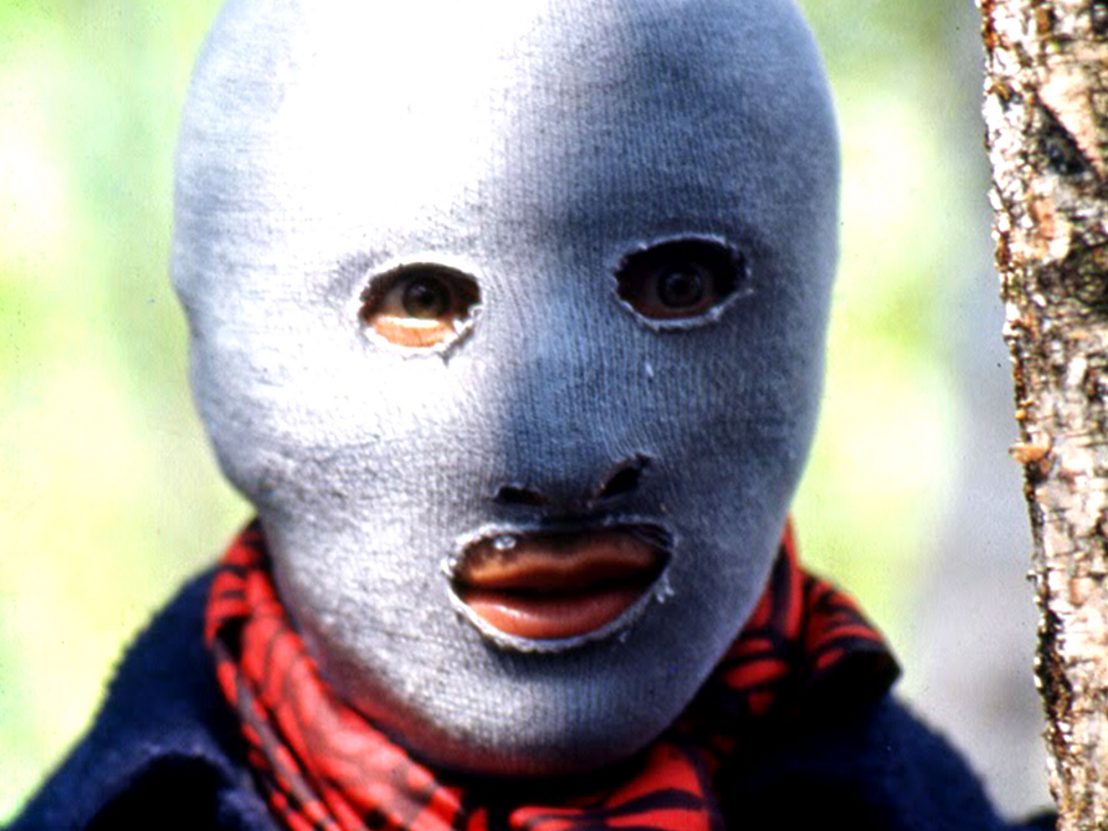
“What you see on the screen is not a product of expressionist art. What you have here are fragments of cloth found under the fingernails of one of your companions who was barbarously murdered just one week ago.”
Addressing a room full of art history students in Sergio Martino’s Torso (originally titled I Corpi Presentano Tracce di Violenza Carnale, literally ‘The Bodies Bear Traces of Carnal Violence’), Inspector Martino (Luciano De Ambrosis) is keen to distinguish the brutal reality of death from its depiction in art. This is – although the Inspector does not realise it – a continuation of a conversation on aesthetics between Franz (John Richardson), the professor who is leading the class, and Jane (Suzy Kendall), his American student.
In his lectures, Franz complains that local Renaissance painter Pietro Perugino’s portrayals of saints’ martyrdoms are bloodless and bland products of “convoluted provincial formalism”, whereas Jane insists that Franz is overlooking the spiritual aspect of the artist’s work. In any case, as Jane’s friend Dani (Tina Aumont) suggests, “He was a painter, not a butcher.”
Martino (the director) might be viewed either way: for while he paints this proto-slashing giallo in all the colours of the dark, he does not share Perugino’s aversion to blood and gore. As a serial killer strangles women with a red scarf before mutilating their bodies, Jane, Dani and their friends Katia (Angelo Covello) and Ursula (Carla Brait) flee Perugia for a country villa, not realising how many eyes are on them. Indeed, Martino offers a masterclass in the male gaze, as his lens mimics the ogling, predatory perspective of a parade of sleazily lecherous misogynists, confronting viewers with the horrific realisation that the killer could be any or every man (and even more disturbingly for any male viewers, the suspects are all men who watch).
In the opening sequence, the spectacle of pretty young women stripping and cavorting on a bed is repeatedly disrupted by the sound of a camera’s shutter, as a reminder that this exhibition is being staged and designed, intradiegetically, to be seen. That there is also a disturbing cutaway to a doll on a clifftop suggests that whoever is operating the camera is bringing to this scenario some very personal psychic baggage.
Thereafter, each of the many shots in the film displaying female flesh will turn out to include a male voyeur, at the window or behind the bushes, with whom we share the leering view. Voyeurism aside, hatred of women also extends far beyond the killer. “I’ll kill you, you bitch!” shouts Dani’s creepy long-term stalker Stefano (Roberto Bisacco) as he starts literally strangling a prostitute who has questioned his sexuality. “I’ll strangle the bitch!” echoes a biker who has been sexually rebuffed by Carol (Conchita Airoldi).
These words, and the attitude that they encapsulate, are not so very far from the credo of the one actual killer, who regards women merely as “stupid dolls made out of flesh and blood”, and finds manically misogynistic justification for acts of murder (“Bitches! Bitches! They’ll do anything to get what they want!”). The near universality of male errancy in Torso certainly makes it difficult to guess the identity of the killer – but it also points to another message in Martino’s work, inscribed expressionistically by men on the bodies of women.
Torso is released by Shameless on Blu-ray on 28 August, 2017.
Published 28 Aug 2017

Iconic stars like Anita Strindberg and Edwige Fenech are the thread that ties this deviant subgenre together.

By Anton Bitel
Juan Piquer Simón’s Pieces is among the goriest films ever made.

By Adam White
Wes Craven’s seminal 1996 film occupies a uniquely female space.